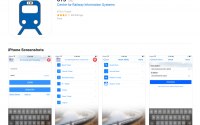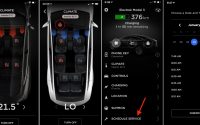Mobile app for comparing petrol prices being considered: Competition watchdog
SINGAPORE: The Competition Commission of Singapore (CCS) said on Tuesday (Dec 19) that while it cannot find evidence of collusion between petrol retailers in Singapore, “there is scope to increase the transparency of effective retail petrol prices”.
The competition watchdog said in a news release that it may develop a web portal or app to help consumers compare petrol prices. This will also encourage more transparent competition among the petrol retailers, given the potential entry of a fifth retailer, Sinopec, in Singapore, CCS said.
The announcement followed the release of key findings on Tuesday from its second inquiry into the retail petrol market in February 2015.
The inquiry took place at a time when the price of crude oil experienced a sustained decline from US$115 per barrel on Jun 19, 2014 to reach a low of US$46 on Jan 12, 2015.
During this period, CCS said it received feedback that retail petrol prices had not fallen in tandem with crude oil price declines.
The watchdog said it conducted the inquiry to understand the pricing process of petrol retailers and to understand the purchasing habits of motorists, including how they decide between different retail brands.
RETAIL PETROL PRICES DO NOT ALWAYS MOVE IN TANDEM
CCS said it observed that price changes between the petrol retailers do not always move in tandem.
Where similar price changes or price convergence is observed, this can be due to the petrol retailers regularly monitoring and reacting to each other’s listed retail petrol prices and promotions in an effort to retain their customers or to win new customers, it added.
CCS said while listed retail petrol prices are similar across petrol retailers, effective retail prices were lower by 5 per cent to more than 20 per cent than the listed retail petrol prices when various discounts and rebates offered under loyalty programmes are taken into account.
A consumer survey found that a high proportion of consumers, about 93 per cent, enjoy petrol discounts and rebates on a regular basis.
CCS also found that 58 per cent of motorists did not switch petrol brands between 2012 and 2016.
According to the survey, only an average of one in five consumers compared prices across petrol brands.
The top reasons for not switching were: Convenience of station locations, satisfaction with current promotions and loyalty programmes, accessibility to a wide network of stations, and protection of the vehicle’s engine.
GREATER TRANSPARENCY NEEDED
CCS said discount and rebate schemes can be complicated and make price comparisons difficult for consumers.
“If information on effective prices, i.e. retail prices net of petrol discounts and rebates, were made more simple and readily available, consumers would be able to compare effective prices easily and hence, make more informed petrol purchase decisions,” the watchdog said.
“This would in turn facilitate a more price-competitive retail petrol market in Singapore, as petrol retailers would need to offer better prices and promotions to retain or attract customers.”
Among survey respondents who monitor prices across petrol brands, those who use comparison websites or mobile apps enjoyed more discounts, compared to those who monitor prices through conventional means such as on-site display or petrol retailers’ websites.
This would translate to potentially S$40 million savings a year, if all motorists in Singapore monitor petrol prices through comparison websites or apps, CCS said.
The survey also found that 63 per cent of motorists in Singapore purchased a higher grade of petrol than needed for their vehicles.
This could be due to a perception among many motorists that a higher grade of petrol is better. However, studies have shown that using a higher petrol grade than recommended does not optimise engine performance, the watchdog said.
Source
http://www.channelnewsasia.com/news/singapore/petrol-price-comparison-mobile-app-web-portal-9509538


